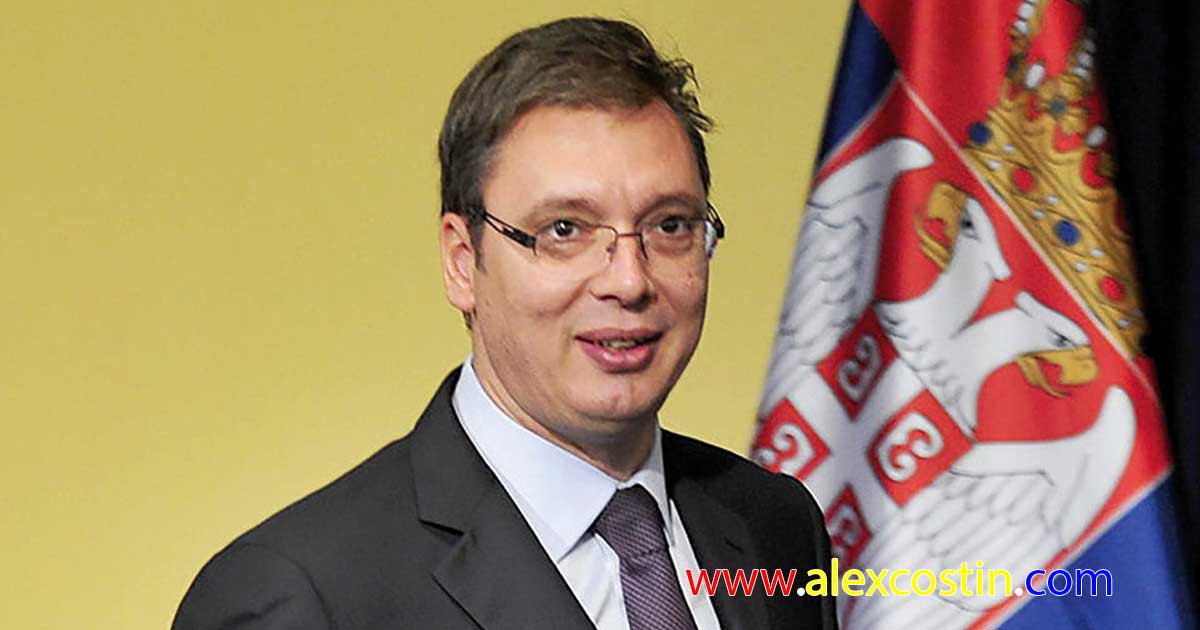Aleksandar Vucic: The Polarizing President Shaping Serbia's Future!
Aleksandar Vucic Biography
Aleksandar Vucic, born on March 5, 1970, in Belgrade, Serbia, is the current President of Serbia and a controversial figure in the country's political landscape. His journey from a far-right nationalist to a pro-European reformist has been marked by both praise and criticism, as he navigates Serbia's complex relationship with its past and its aspirations for the future.
Childhood and Early Life
Vučić grew up in Belgrade, where his family had settled after fleeing persecution from Croatian fascists during World War II in Bosnia. Despite facing hardships in his early life, Vučić's experiences shaped his worldview and his desire to fight for the interests of the Serbian people.
Education and Early Career
After completing his military service, Vučić studied law at the University of Belgrade, where he developed an interest in politics. In 1993, he joined the far-right Serbian Radical Party (SRS), becoming a member of the National Assembly of Serbia and later serving as the party's secretary-general.
Political Career and Transformation
Vučić's political career took a dramatic turn in the late 1990s, when he served as the information minister under Yugoslav strongman Slobodan Milošević. During this period, he was responsible for implementing some of Europe's most restrictive laws on freedom of speech, a time marked by ethnic cleansing, hatred towards Croats and Muslims, sanctions, and wars.
In 2008, Vučić and other former members of the Radicals founded the Serbian Progressive Party (SNS), undergoing a public change of heart. He renounced his previous ultra-nationalism and pledged to take Serbia into the European Union, despite Kosovo's declaration of independence in the same year, a move never recognized by Serbia.
Vučić's rise to power was swift, with the SNS winning parliamentary elections in 2012 and forming a coalition with the Socialist party. He was appointed deputy prime minister and later became prime minister in 2014. In 2017, he was elected president with a majority in the first round of voting, consolidating his rule and eroding democratic institutions in a manner reminiscent of the authoritarianism of the 1990s, according to his critics.
Family and Personal Life
Vučić has been married twice. In 1997, he married Ksenija Janković, a journalist, with whom he had two children before divorcing in 2011. Janković passed away in 2022. In 2013, Vučić married Tamara Đukanović, a diplomat with the Ministry of Foreign Affairs of Serbia. Their son was born in 2017, shortly after Vučić took office as president.
Social Media Presence and Controversies
Vučić maintains an active presence on social media platforms, particularly Instagram, where he shares updates on his political activities and engages with his supporters. However, his tenure as president has been marked by numerous controversies, including allegations of corruption, cronyism, and human rights abuses.
In 2019, Vučić was hospitalized due to apparent cardiovascular issues, which some claimed were partly due to pressure from journalists, though he denied this. In 2020, his son Danilo contracted COVID-19 and was admitted to a hospital in Belgrade.
Achievements and Controversies
Despite the controversies surrounding his rule, Vučić has achieved some notable successes, including overseeing a period of economic growth and stability in Serbia. He has also managed to maintain relatively stable relations with Kosovo, though his recent willingness to formally normalize relations has drawn accusations of treason from his political opponents.
However, Vučić's authoritarian tendencies and nationalist rhetoric have drawn widespread criticism from the international community, including the European Union. In 2023, large-scale anti-government protests took place in Serbia following a series of shootings, prompting Vučić to promise early parliamentary elections before the end of the year.
Net Worth and Legacy
While Vučić's exact net worth is not publicly known, his family members and associates have amassed significant wealth during his time in power, leading to accusations of cronyism and corruption. As he continues to shape the future of Serbia, Vučić's legacy will be defined by his ability to balance his nationalist agenda with the demands of a changing world and the expectations of Serbia's citizens and the international community.
Aleksandar Vucic Conclusion
Aleksandar Vučić's journey from a young nationalist to becoming the president of Serbia is a testament to his political acumen and ability to adapt to changing circumstances. However, his authoritarian tendencies and nationalist rhetoric have also drawn widespread criticism, both at home and abroad. As Serbia continues to grapple with the challenges of the 21st century, the role of Vučić and his SNS party will remain a central issue in the country's political discourse.

Content created by:
Alex Costin
Results driven services:
Digital Marketing
Digital Marketing Expert
CV
No tracking cookies!
General information purposes only!
Business partners offers (backlinks)
Google, Bing, Yandex and Baidu:
Search Engine Optimisation
The city beating heart:
Night Life
Better job prospects:
Learn English
Watches, bags, sandals:
Online Shop
Copyright © 2024 Alex Costin